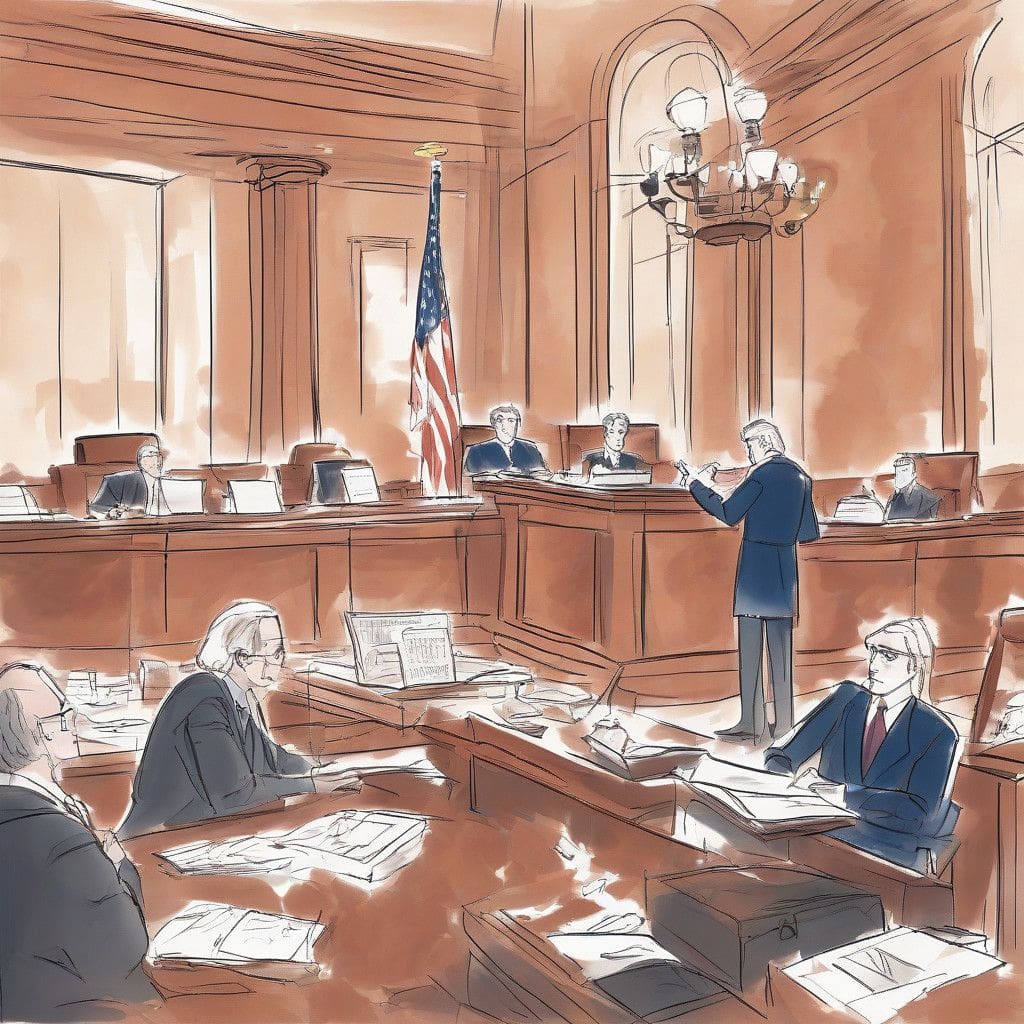In a significant development within the legal battle between billionaire hedge fund founder Louis Bacon and disgraced fashion executive Peter Nygard, a New York appeals court has overturned Bacon’s hefty $203 million defamation judgment against Nygard. The ruling was predicated on the court’s finding that Nygard was not properly served with court papers while he was incarcerated for sexual assault, casting a shadow over the previous proceedings that had deemed Bacon the winner by default.
Last year, Bacon, who operates Moore Capital Management, the hedge fund he founded, emerged victorious when a court-appointed referee found that Nygard, his former next-door neighbor in the opulent Lyford Cay community in the Bahamas, propagated damaging lies about him. These statements, which included heinous accusations of murder, drug trafficking, insider trading, and even connections to the Ku Klux Klan, were identified as malicious efforts to tarnish Bacon’s reputation as part of a longstanding feud.
However, the New York appeals court emphasized a critical legal principle: proper service of court documents is foundational to ensuring that due process is upheld. The court noted that, although a process server delivered the court papers to the prison where Nygard is serving time, there was insufficient evidence to confirm that the materials were received by him. As a result, the appellate court has returned the case to the trial judge for further consideration.
The implications of this ruling are significant, not just for the parties involved but also for the broader context of defamation law. Bacon’s initial victory had been largely based on a default judgment due to Nygard’s failure to respond to the suit. In legal terms, default judgments can sometimes be overturned if a defendant was not given fair notice of the proceedings—raising questions about the integrity of the prior judgment and the fairness of the legal process.
Nygard, now 83, is facing multiple legal hurdles. He was convicted in Toronto for sexually assaulting four women and is currently embroiled in several more criminal trials in Canada. Furthermore, he faces serious allegations in Manhattan related to sex trafficking and racketeering conspiracy; he is expected to be extradited to the United States after the completion of his Canadian legal troubles. These charges highlight the extent of Nygard’s alleged misconduct, with accusations that he orchestrated a conspiracy to control women through physical means and surveillance, using his wealth and influence to facilitate these operations.
The saga surrounding Bacon and Nygard serves as a stark reminder of how personal conflicts can intertwine with broader legal and ethical issues, particularly in the realm of power dynamics, celebrity status, and accountability. The court-appointed referee, retired federal judge Layn Phillips, remarked on the case’s gravity, emphasizing the “deliberate plan” devised by Nygard aimed at “personally and professionally destroying” Bacon. This sentiment underscores the dangerous potential of wealth and influence exercised in the pursuit of private grievances.
As the case returns to court, it remains to be seen how the next phase will unfold. The complexities of this legal battle highlight a growing discourse on the mechanisms of justice, particularly when they intersect with high-profile individuals. The outcome will likely have significant repercussions not only for Bacon and Nygard but also for similar cases involving public figures and defamation.
In conclusion, the overturning of Louis Bacon’s defamation judgment against Peter Nygard sheds light on critical aspects of legal process and the importance of due process in the judicial system. The case continues to evolve, with potential implications that extend well beyond the courtroom. Advocates for justice and equality will undoubtedly be watching closely as this high-stakes drama unfolds.










